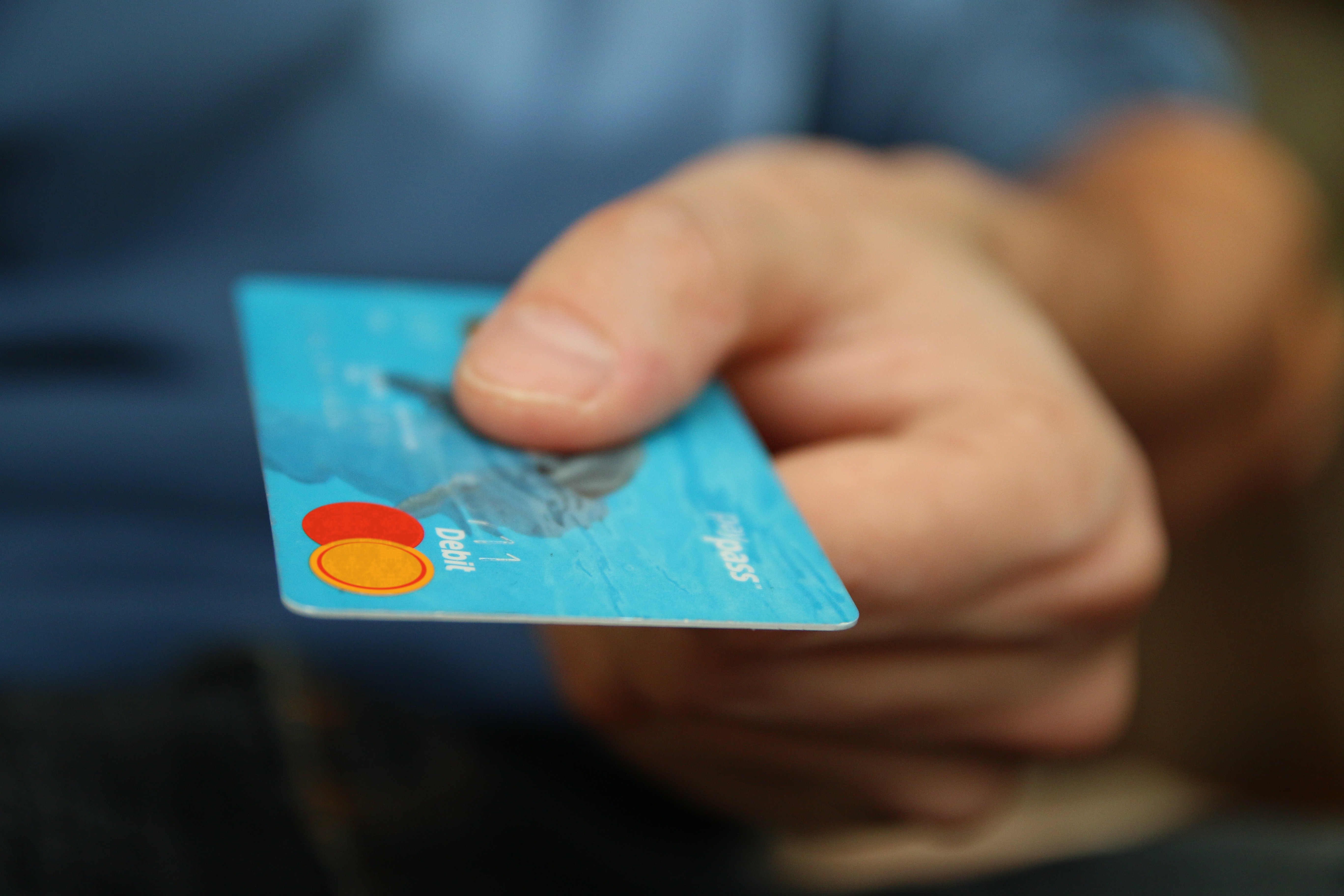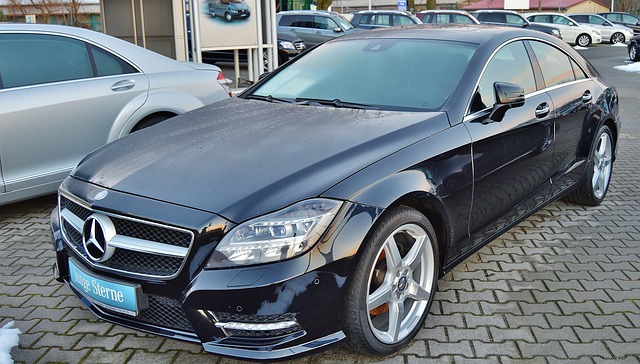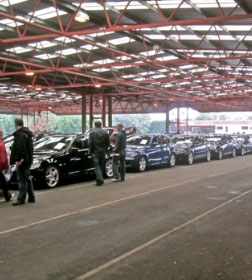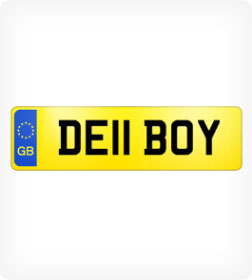The complete guide for becoming a motor trader
Interested in buying and selling cars? Have dreams of becoming a car trader?
Whether you’ve been thinking about it for a long time and are just deciding to take the plunge, or it’s a relatively new thought for you to get into the motor trade, there are things you need to know on your way to becoming a motor trader in the UK.
At Tradesure Insurance, we’ve been insuring motor traders for over 50 years, and in that time we’ve learned a lot about the legal requirements needed to register and practice as a car trader. There are several things you need to consider before taking a step into business as a motor trader. Whilst it might seem daunting, Tradesure has you covered with our guide.
GET TO KNOW THE MOTOR TRADE INDUSTRY
The first step is getting to know the car trader industry, and understanding what type of business you’d like to create. Are you looking to specialise in trading specific vehicles such as classic cars or luxury cars? Getting to know what is popular in your area can be helpful, but also noting any developments in the news that could affect the motor trade market – especially at the moment with access to car dealers and routes to market affected by COVID-19.
What motor trade business could I start?
The motor trade is diverse, and there are many different types of motor traders out there such as:
- Vehicle sales
- Servicing or repairing vehicles
- Vehicle collection and delivery
- Vehicle recovery
- Tyre fitting
- Working as a mobile mechanic
- Valeting
- Restoring classic vehicles
- Bodywork repairs
- Auto electrical work
UNDERSTAND THE LEGAL REQUIREMENTS
To run your motor trade business legally, you’ll need to register as either a sole trader, limited company or partnership. There are different benefits and requirements for each kind of setup, so it’s worth doing a bit of reading to find out what will suit your car dealership business needs best. The gov. The UK website guides how to set up a business and is a useful resource for those wanting to understand the ins and outs of selling and buying cars.
TRADE PLATES 101 & APPLYING FOR TRADE PLATES
A trade plate is a temporary license plate used by car dealers or inspectors to avoid the hassle and cost of registering and taxing each vehicle they temporarily own. You also need trade plates to legally drive the vehicles you buy to sell or to test vehicles on a public road. Trade plates mean you don’t have to individually register and tax each vehicle – instead, as a motor trader, you pay a license rate for a designated period. If you only repair vehicles, you may not need trade plates.
After setting up your motor trade insurance policy and checking out the legalities behind the business, you’ll need to apply for trade plates.
DVLA guidance on applying for trade plates states that in addition to your trade license application form, you’ll need to provide a copy of your Motor Trade Insurance Certificate, which must match the name on the application. If you do not have one, you’ll need to tell DVLA why and give details of your Companies House registration number.
GETTING INSURED AS A MOTOR TRADER
Insurance is a legal requirement for motor traders – based on your business plans, will you need part time or full time motor trade insurance? Do you plan to run your car dealership business from home, or from a dedicated business premises? You might also want to consider tools and goods in transit cover, if you’re transporting vehicles or tools that are an important part of your motor trade business.
MOTOR TRADE EMPLOYEE INSURANCE
If you’re thinking of employing staff, you’ll need to ensure that you have insurance that covers them, too. Employers liability insurance is a requirement for anyone employing even one other person.
HOW TO GET YOUR BUSINESSES UP AND RUNNING
A common way to join the industry is to start by selling cars part-time. Many people find it easy to balance this alongside their main job. You can start small and build enough income to purchase a stock of vehicles, which can then help you move into full-time sales.
If you’ve worked in sales at a dealership before, you might be ready to go full-time right away. Some people enjoy fixing, servicing, restoring, or cleaning vehicles. Usually, deciding to work full-time comes after starting this kind of business on the side. Doing so helps you build a loyal customer base, connect with others in the automotive industry, and find the best places to get parts.
BUY A CAR TO SELL
Once you’re all set up, you can look for the first car or cars you’d like to purchase as part of your first step into the motor trading industry.
There are many different platforms where you can purchase cars as a car dealer, such as websites like AutoTrader, or attending an auction house.
We’ve created guides for each area so that you can find when and where the nearest auctions are to you, click here to find out more.
Ensure that you’ve done your research on the car, that you’ve checked the condition and taken it for a test drive if possible. You can check MOT history using the government’s online MOT checker service.
Other things to check:
- Does the car have a V5C document? Without this proof of ownership, it’s possible that the vehicle is stolen
- Does it have a maintenance history? You need to know if there’s anything that could affect its reliability and value
- Various websites offer car history checking services that will let you know further details about the car such as whether there is any finance on the vehicle that could make it unsellable
Once you’ve found a car that you’re certain will make some profit, ensure that it’s in the best possible condition and is ready to sell. Consider removing any scratches, carry out any work on advisories from the previous MOT, and make sure that the car is clean and presentable.
FIGURE OUT YOUR PRICING
It’s also important to know how to price your cars for your motor trade business. If you’re selling too high, you can put off potential customers wanting to buy your cars. However, selling too low will mean you make no profit. Finding the right balance for your motor trade company doesn’t have to come with years of experience; online auction sites such as AutoTrader can give you an insight as to the price that others are selling the same spec vehicle for.
MARKET YOUR MOTOR TRADE BUSINESS
A lot of motor traders sell through word-of-mouth recommendations and social media listings, but when you’re new to the car dealing trade, it might take a while to get this established. You could set up your website, or use a car sales forum like AutoTrader to get going. Cars can also be sold on eBay. Whatever you choose, and you may well want to market in multiple ways, make sure you’ve checked for:
- Selling fees
- Listing restrictions
- Details like delivery and collection arrangements are included in your listing
Further considerations for your motor trading business plan:
- How much money will you need to start?
- What expenses will you have?
- Do you want to employ other people?
- How will you market your services?
- Who are your competitors?
- Will you need to pay tax and national insurance on profits you make?
- How many vehicles do you need to sell or work on to make profits?
HAVE QUESTIONS?
If you’re considering becoming a motor trader and would like more information around how to make sure your business is properly covered and legal with the right insurance, we’re here to help. It may not cost as much as you think – many business insurances can be combined under one policy, making life simpler for you and giving you peace of mind that your venture is protected.
Give our team a call on 0121 248 9300 or send us a message below and we’ll call you back.
Article sources:





